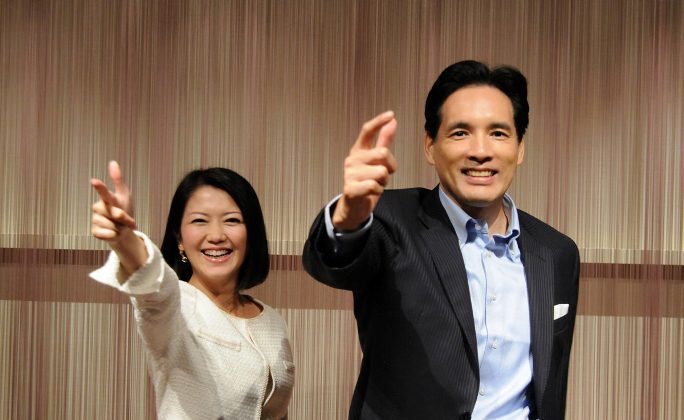What are political TV talk shows like in your country?
In Japan, they’re full of over-excited people yelling insults at one another. There’s plenty of destructive criticism and almost no constructive ideas.
TV journalists actually like all this negativity. They love the fact that they can “take down” a new prime minister every year. In a way, I understand. With that much power, why should they be interested in stimulating positive discussions? Not to mention, they have to deliver an entertaining product. They’re under pressure to win good ratings. The easiest way to do that is to put on overheated shouting matches.
Meanwhile, the level of political debate is driven down, and the country suffers.
I’m sick of it.

I’m an entrepreneur. As a group, entrepreneurs are not big fans of naysayers and negativity. “Okay, I get what the problem is. Now where’s the solution? What’s the action plan?” This is how we think.
We’re always thinking about what we can—not what we can’t—do.
So I decided to do something about the state of political TV.
I made a plan for a new kind of TV talk show, identified a TV station to air it, and convinced a sponsor to back it. I host the show myself and pick the guests. “The Japan Future Conference” goes out on Sunday, the traditional day for political discussion shows here, as in the U.S.
This is our formula.
3 ground rules
•Provide ideas, not criticism
Criticizing is easy, but it’s also sterile. We want constructive, actionable ideas only.
• Actions speak louder than words
Speakers must follow through on their ideas. Politicians should seek to change the law, academics to mold public opinion, etc.
• Be aware of yourself as a leader
Speakers and viewers alike should embrace the fact that their individual actions can make a difference.
A fair cross-section of speakers
• A diverse group (politicians, academics, business people, and NPO representatives) can generate new perspectives on old problems.
• Different people engage the audience by presenting different points of view to identify with.
• Younger speakers (no one over fifty, most in their twenties and thirties) are more open to change, and also attract younger viewers.
A clear, focused format
• Each week has just one theme.
• Each week’s theme is broken into three sub-issues for simplicity.
• There are four expert speakers and two presenters. The two main guests speak for seven minutes each, à la TED. The two guest commentators then respond with their views. A general discussion ensues. Finally, we engage the studio audience by taking questions from the floor.

We’re about halfway through our thirteen episodes now. We’ve tackled weighty issues like women in the workplace, agricultural reform, foreign policy, and the national debt in (I hope!) a new and lively way. Feedback is good. People are tweeting that they’ve never seen a show like it, that they feel inspired to do something.
Since I finish the show every week by pointing into the camera and declaring to the audience “It’s you who will create Japan’s future,” that is exactly the result I was hoping for.



